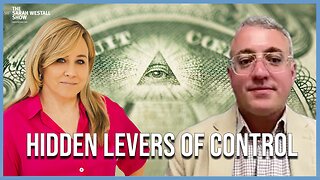Premium Only Content

1 Samuel 21-24 | David Lied
1 Samuel 21-24 recounts a series of events in David's life as he fled from King Saul, who was jealous of David's popularity and saw him as a threat to his own reign.
In Chapter 21 David goes to the town of Nob, where he meets Ahimelech the priest and asks for provisions for himself and his men. David lies to Ahimelech, telling him that he is on a secret mission from the king and needs food. Ahimelech gives David the holy bread and the sword of Goliath. When Saul learns of David's whereabouts, he orders the execution of Ahimelech and all the priests who helped him.
The story of David lying to Ahimelech raises ethical questions about the use of deception, even in difficult circumstances. Some commentators argue that David's lie was justified because he was in a life-threatening situation and needed to protect himself and his men. Others argue that lying, even in dire circumstances, is still wrong and goes against the biblical commandment not to bear false witness. Ultimately, the story of David's flight from Saul highlights the importance of trust and faithfulness, even in the face of danger and adversity.
In Chapter 22, David flees to the cave of Adullam, where he is joined by his family and a group of men who are in debt, distressed, or discontented. Saul discovers that David is in the area and orders his soldiers to kill him. David seeks refuge with the people of Keilah, who are being threatened by the Philistines. With God's help, David defeats the Philistines, but Saul continues to pursue him.
After that, David continues to evade Saul, who is determined to kill him. David receives help from the people of Keilah, but he eventually has to flee again when Saul threatens to attack the city. David seeks guidance from God through Abiathar the priest, who brings him the ephod. David learns that the people of Keilah will betray him to Saul, so he and his men leave the city and remain in the wilderness.
Finally in Chapter 24, Saul pursues David into the wilderness of Engedi, where he enters a cave to relieve himself. David and his men are hiding in the cave, and David has the opportunity to kill Saul. Instead, David cuts off a corner of Saul's robe without him noticing. Later, David confronts Saul and shows him the piece of his robe, telling him that he could have killed him but chose not to. David refuses to attack the Lord's anointed and trusts that God will judge between them.
As for the context of David refusing to attack the Lord's anointed, this was a common belief in ancient Israelite culture that the king was chosen and anointed by God and therefore should not be harmed or opposed. David's respect for Saul's status as king and his refusal to harm him even when he had the chance shows David's character and his faith in God's sovereignty. David's actions in this chapter also set an example of forgiveness and mercy that is echoed in the teachings of Jesus in the New Testament.
-
 16:13
16:13
Gods Plan Your Part
4 months agoTitus 2 | Building a Stronger Church Through Intergenerational Faith
623 -
 5:09:12
5:09:12
EzekielMaxwellVT
10 hours agoVTuber/VRumbler - Vampire The Masquerade - Listening to the voices in Jo's head
25.3K -
 6:48:45
6:48:45
Welsh Girl
10 hours ago🔴 Minecraft - Finding the Ender Dragon - DAY 7
37.9K3 -
 4:00:33
4:00:33
SynthTrax & DJ Cheezus Livestreams
1 day agoFriday Night Synthwave 80s 90s Electronica and more DJ MIX Livestream Trip-Hop SPECIAL EDITION
67.4K1 -
 4:03:27
4:03:27
FusedAegisTV
14 hours agoRumble Smackdown! #001 Street Fighter 6 $500 Online Tournament
98.4K8 -
 55:58
55:58
BonginoReport
11 hours agoCan Trump Make TikTok Great Again? (Ep. 20) - Nightly Scroll with Hayley Caronia - 04/04/25
166K99 -
 5:09:35
5:09:35
Jorba4
7 hours ago🔴Live-Jorba4- COD WARZONE- VERDANSK FRIDAY. Hot drops W/ XxXAztecWarrior and Lumpy Potato X2
40.9K1 -
 4:33:11
4:33:11
Nerdrotic
13 hours ago $40.41 earnedPost-Apocalyptic Woke Hollywood, MineCRAP, CinemaCONNED - Friday Night Tights 348, Chris Gore & Rags
134K21 -
 1:00:43
1:00:43
Sarah Westall
10 hours agoThe Greatest Financial Crime in History: How Globalist Central Bankers Did It w/ James Patrick
75.3K3 -
 4:44:07
4:44:07
IamTyrantt
10 hours ago $2.15 earnedTGIF! HIGH ENERGY VIBES!
41.4K1